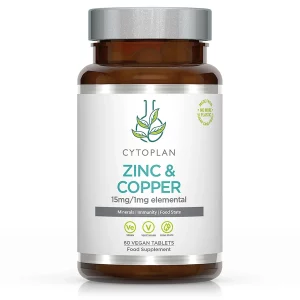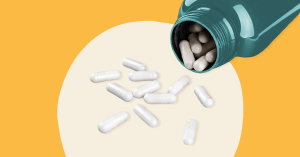Share This Article
Zinc and copper are minerals that are essential for human health. They are found in the skin, hair, nails and bone, and they play a role in numerous biochemical processes.
Copper is necessary for the production of melanin, which gives skin its color. It also helps to produce new blood cells and maintain healthy nerve function.
Zinc is involved in wound healing, immunity and cell growth. It also helps to regulate testosterone levels in the blood. These minerals are present in many foods, including seafood, meat, poultry, nuts and grains.
They are also available in supplement form.
What does zinc and copper do?
Minerals are inorganic substances that are found in the earth. They are essential for human health and play a role in many bodily processes.
Two minerals that are important for human health are zinc and copper. Zinc is involved in immune function, wound healing, and protein synthesis.
Copper is involved in the absorption of iron, the production of energy, and the formation of collagen. While both minerals are important for human health, they each have unique functions.
Total price: £17.00
What is copper and zinc combined?
Copper and zinc are minerals that are often found together in nature. They are both essential minerals for human health, and they have a number of similarities.
For example, both copper and zinc are vital for the production of energy in the body. They also play important roles in the immune system and in wound healing. However, copper and zinc also have some key differences.
For instance, copper is involved in the production of red blood cells, while zinc is necessary for the development and function of white blood cells.
Additionally, copper is essential for nerve function, while zinc is involved in hormone production. Although they are similar in some ways, copper and zinc each perform unique and essential roles in the body.
Is zinc and copper good for you?
Minerals are essential nutrients that are required for good health. The body needs minerals for a variety of different functions, including bone and tooth development, blood clotting, and muscle contraction.
While our bodies need minerals, we only require small amounts. minerals are found in a variety of different foods, and they are also available in supplement form.
If you have a mineral deficiency, then taking a supplement can help to correct the problem. However, if you’re not deficient in minerals, then taking supplements is not likely to provide any benefits.
In fact, taking too much of certain minerals can actually be harmful. For example, too much iron can lead to stomach problems and constipation. Too much zinc can suppress the immune system.
And too much copper can cause nausea and vomiting. So, if you’re considering taking a mineral supplement, it’s best to talk to your doctor first to see if it’s right for you.
Both zinc and copper are examples of trace minerals that are essential to the proper functioning of essential metabolic processes and are required for the upkeep of an individual’s health throughout their whole life.
According to the findings of a number of national food surveys, the typical American diet contains amounts of both of these necessary components that range from slightly below average to much below average. To find the most suitable Zinc & Coper just visit the Cytoplan website.




